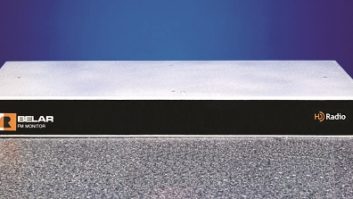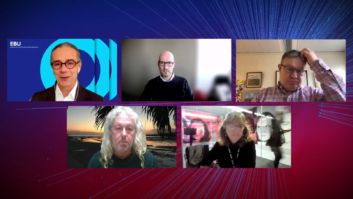In any annual audience report radio is almost always a footnote. TV is steady at the top. But it is social media that is offering staggering figures — any tweet, just as any one minute TV bulletin, is capable of getting more than a million views, and million remains the magic word.
The BBC international figures (a healthy 210 million last year) also show an increase for all platforms, with TV overtaking radio for the first time. But in the words of Fran Unsworth, the new director of World Service, “it is rather too soon to talk about the demise of radio — the number of our radio listeners has actually increased since last year, and radio will continue to be an integral part of our service for decades to come.”

This is true and encouraging. But just branding radio as indispensable, like many enthusiasts, bloggers and journalists often do, will not save the medium.
There are those who believe that radio on FM will remain unchanged for many decades and this is just fine. In their view there is no need for digital radio, particularly since there are at least three internationally recognized digital radio standards and none appear to be emerging as the universal choice.
”The battle of the standards” is also causing delay. There are different standards for different countries and different needs. Some of these standards might be compatible and complementary. Excluding the complementarity and the possibility of bringing to the market multi-standard receivers allows for yet more self-imposed delay.
There is also an unspoken hope that if we wait long enough and we close enough transmission sites, then the Internet and 5G, a new as yet unspecified invention, will deliver radio without any need for terrestrial broadcasting. This idea, so prevalent a couple of years ago, is less fashionable today as the reality of restricted broadband, spectrum and costs has hit home. So digital is the way forward but its marching has been long and halting.
Of the three major digital standards used around the world none is younger than 16 years. Only part of one, the VHF mode of the Digital Radio Mondiale, DRM standard (DRM+) was developed during this decade, in 2011. The other standards precede the Internet.
So has it taken too long for digital radio to take root? Perhaps. Or maybe digital radio was born ahead of its time, when not all things were digital. And while the benefits of digital radio are not easy to fit into one slogan but they are undeniable.
The advantages of DRM, for example, include more choice of channels at equivalent spectrum used for analog, improved coverage, better sound (for sure in AM), multimedia capabilities, less electricity consumption, no need for multiplexes and more advertising opportunities. Furthermore, DRM offers access to information and entertainment to people in every part of a country or of the world, not just in big cities. It keeps radio local, national or international and makes it truly relevant.
The one word you have not found here yet is money. Like any new technology, the introduction of digital radio costs money at all levels. Therefore, new digital receivers cost more because the digital components are more expensive to produce. Some receivers that have been on the market for a while are inevitably cheaper than newer ones. A decent receiver providing a full digital experience (such as the new DRM Indian receiver) cannot be cheap from day one, no matter what standard or standards it features. After all, it’s taken more than seven decades for the FM receiver to become inexpensive. There is no time to wait half a century to see cheap digital receivers. And “cheap” is always dependent on volume.
Maybe the time for digital is now and radio or audio will survive. But, rather than sitting on the fence and waiting for something to happen, it is better to focus on new exciting digital content, inform the listeners about the benefits of digital radio and just go for it!
Digital radio is a great new platform that adds value. It does not need to fight the immediacy, directness and engagement of social media. It can simply integrate them.
Ruxandra Obreja is the head of Digital Radio Development in the BBC World Service Group and chairman of Digital Radio Mondiale. For information about DRM at IBC2015 can be found here.










